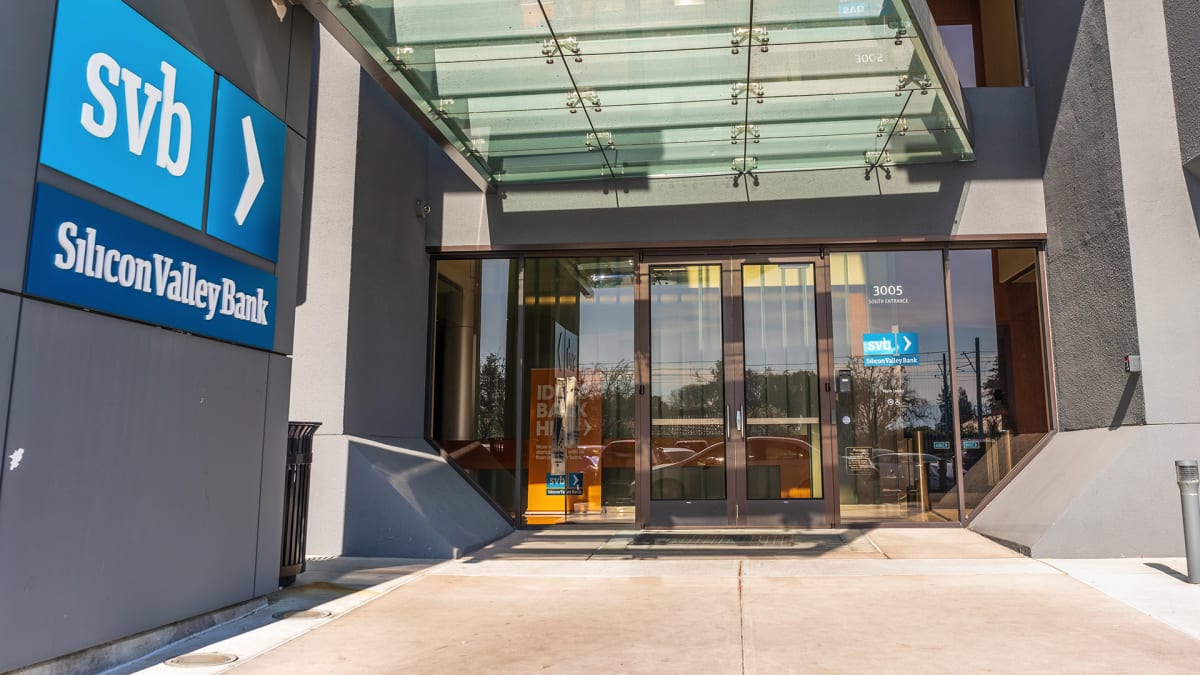
The earthquake caused by the closure of Silicon Valley Bank continues to resonate in business circles.
Investors, companies and startups are still wondering how the 16th largest bank in the United States could have collapsed so suddenly and so quickly.
SVB (SIVB) was the bank of startups.
"SVB was a very important bank in the venture capital ecosystem," investor Ryan Gilbert, founder of venture capital firm LaunchPad Capital said. "It's a bank that we worked with significantly. They held our deposits when we had deposits with them, and they extended lines of credit and other loans to many companies."
"They understood startups, they probably understood startups better than any other bank. So it's a big loss, that they no longer going to be in business."
SVB was the go-to lender for many tech companies. The firm was a central player in the innovation economy. It was the backbone of the tech industry in Silicon Valley. It played an important role in the startup ecosystem, by providing specialized financial services, industry expertise, a valuable network, and a strong reputation.
'Irreversible Mistake'
It also offered a range of financial services, tailored specifically to the needs of startups, such as venture debt, corporate banking and asset management. These services are designed to help startups manage their finances, optimize their cash flow and scale their businesses.
By shutting it down, the Federal Deposit Insurance Corporation took control and is now the manager of $175 billion in customer deposits, including money from several startups and from some of the biggest names in the technology world.
The regulator also created a new entity, and indicated that unsecured depositors, that is to say SVB customers with more than $250,000 in their accounts, will not, for the moment, have access to their money.
It leaves many uncertainties about the ability of many startups to operate in the coming weeks, since their funds are locked up. The bank's closure leaves a big void in the startup financial ecosystem.
"The gov’t has about 48 hours to fix a-soon-to-be-irreversible mistake," well-known hedge fund manager Bill Ackman warned on Twitter on March 11. "By allowing @SVB_Financial to fail without protecting all depositors, the world has woken up to what an uninsured deposit is — an unsecured illiquid claim on a failed bank."
The financier continued: "Absent @jpmorgan@citi or @BankofAmerica acquiring SVB before the open on Monday [Mar. 13], a prospect I believe to be unlikely, or the gov’t guaranteeing all of SVB’s deposits, the giant sucking sound you will hear will be the withdrawal of substantially all uninsured deposits from all but the 'systemically important banks' (SIBs)."
'I'm Open to the Idea'
One of the solutions to avoid a disaster scenario and a bailout with taxpayer money would be for a third party to come forward to buy the bank. Elon Musk says he is interested in playing the role of white knight. That's what he just said on Twitter, when a user floated the idea that Twitter, which he owns, should acquire what was left of Silicon Valley Bank.
This scenario would allow the billionaire to realize his ambition to transform the platform into a mega app called X, which would offer financial and other services.
"I think Twitter should buy SVB and become a digital bank," the Twitter user said.
"I’m open to the idea," Musk responded, without providing further details. For example is he in talks with the FDIC?
Musk's net worth, which is based on his stakes in Tesla (TSLA) and SpaceX, is valued at $165 billion as of March 10, according to Bloomberg Billionaires Index.
The FDIC declined to comment.
Created in 1983, Silicon Valley Bank, which presented itself as a "partner for the innovation economy,” offered higher interest rates on deposits than its larger rivals, to attract customers. The company then invested the clients' money in long-dated Treasury bonds and mortgage bonds with strong returns.
This strategy had worked well in recent years. The bank’s deposits doubled to $102 billion at the end of 2020 from $49 billion in 2018. In 2021, deposits increased to $189.2 billion.
But everything turned upside down when the Federal Reserve began to raise interest rates, which made existing bonds held by SVB less valuable. As a result, the bank had to sell the bonds at a discount to cover withdrawals from its customers. In selling these bond positions, SVB had to take a significant loss of $1.8 billion.
Due to this loss, SVB suddenly announced that it needed to raise additional capital of $2.25 billion, by issuing new common and convertible preferred shares. This decision caused panic and a run on the bank.







